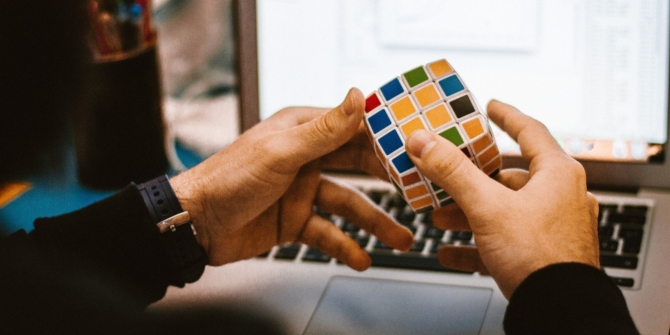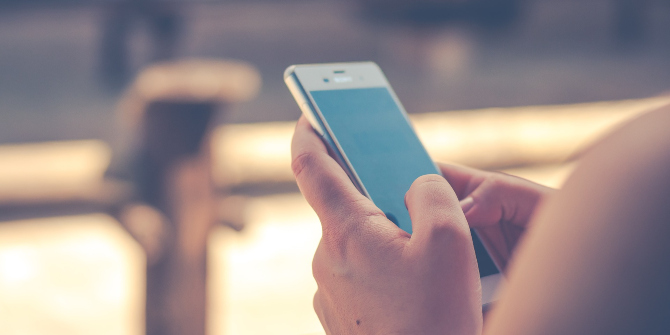
Many of us are doing real work six or even five hours each day, while spending eight-plus hours “at work”, without realising the loss of time spent with family, on hobbies, exercise or energising side projects.
Instead of getting a full-day’s work accomplished, we’re losing productive time to interruptions from co-workers, needless meetings, and especially our perpetually pinging phones. The result is frustration, depression and lost opportunity for workers, and billions lost in profits for our employers.
According to an incisive report issued by online learning platform Udemy, the workplace is filled with distracted, often frustrated employees who aren’t achieving their potential, are simultaneously depressed about it, but unsure what to do.
Here’s another wakeup call: Every time you pull away from a project to check your phone or Twitter feed, it takes 1,395 seconds (23+ minutes) on average to regain your focus. I’ll share more on this later. When we start to look at the statistics, the anecdotal evidence and the science behind this epidemic of digital distraction, it makes sense why our productivity is decreasing while our hours on the job (in the office or when we make ourselves available 24/7 by phone or email) just keep rising.
The science behind the concept of ‘brain dead’
How much time do you spend every day actually digging deep and accomplishing things that matter and how much do you spend swimming in the shallow end, checking off boxes? Or, worse still, distracted by texts, emails and social media?
If you’re like most of us, the time you’re losing is staggering. The hours you spend actually focusing on the projects and tasks that truly matter to you are limited. Your time is a precious resource that you’re probably not cherishing the way you should! As a digital anthropologist who has studied the intersection of business and tech for two decades, I’ve learned that our brains start each day with a set amount of nutrients, and, once you use these nutrients up, you’ve exhausted your supply for the day. So being ‘brain dead’ is real; it’s essentially a brain malfunction.
Getting the most out of our brains was a challenging climb in the analog era; in the digital era, it’s K2. And we make this situation worse by multitasking or giving in to constant distraction, both of which mean we’re exhausting our brain’s limited resources even faster because we’re working in cycles that are incredibly inefficient, leading not only to lower productivity, but more mistakes and lower-quality output.
How bad could it be? (Hint: it’s worse)
All the analysts who’ve studied this problem so far have come to the same conclusion — it’s bad. Just how extensive is the time and productivity we lose to persistent distraction? According to McKinsey & Co., high-skilled workers spend 28 per cent of their work hours reading and then replying to email messages. That doesn’t even touch on the issues of social media distraction.
Meanwhile, research by The Economist, as reported in Management Study Guide, reveals that “logging onto social media costs the US economy a mind-boggling 650 billion dollars,” which translates into $4500 per worker each year! The Information Overload Research Group found that “knowledge workers” lose about 25 per cent of their time “dealing with the incessant stream of data,” again costing the U.S. economy hundreds of billions every year.
Udemy’s research found over a third of millennials and Gen Z employees surveyed (36 per cent) say they spend two hours or more checking their smartphones for personal activities during the workday. That’s over 10 hours of productivity just tossed away each week. We’re spending more hours on the job and getting less done.
Compulsive behaviour
Facebook, Instagram, Snapchat and other popular apps/games were deliberately designed to change our behaviours (it’s called persuasive design). So it’s no surprise that we’re becoming Pavlovian in our compulsive need to answer email/texts, and monitor Twitter/Facebook updates. Even worse, we have reached a point where getting back on track requires slow, deliberate daily practice for us to relearn how to focus.
We’re all distracted, but many of us have completely lost the capacity to focus. It’s something I experienced first-hand. I describe my journey of recovery in my new book.
The 1,395 seconds statistic quoted earlier is the result of research by Gloria Mark, who studies digital distraction at the University of California, Irvine. She’s found that interruptions caused by stopping to check email, Facebook, etc. siphon off a lot more time than we think. While on average it takes almost half an hour to return to our original tasks after an intrusion, with more demanding projects, regaining the same level of focus and productivity takes even longer.
So when we say “time is valuable,” believe it. And the next time you allow yourself to be pulled away for “just a second” to check your Twitter feed, realise that you’re losing much more than half a minute.
♣♣♣
Notes:
- This blog post is based on the author’s book Lifescale: How to Live a More Creative, Productive, and Happy Life, Wiley, February 2019.
- The post gives the views of its authors, not the position of LSE Business Review or the London School of Economics.
- Featured image via pxhere, Public domain.
- When you leave a comment, you’re agreeing to our Comment Policy.
 Brian Solis is a digital analyst, speaker and author. He is a principal analyst studying disruptive technology and its impact on business at Altimeter Group, a research firm acquired by Prophet in 2015.
Brian Solis is a digital analyst, speaker and author. He is a principal analyst studying disruptive technology and its impact on business at Altimeter Group, a research firm acquired by Prophet in 2015.






Very true Sir. Everyone around feels the same but only few are ready to take next best steps to reduce their screen time. Personally to share, i have decided to be on social media only using my laptop rather than my Mobile. It has brought down the time i spend on social networking over 70%.
Thanks for the interesting article.